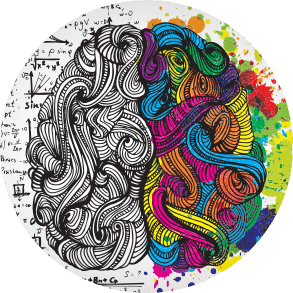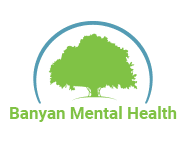Mental Health Disorder Treatments
The Banyan Mental Health Program is a unique approach that focuses on a fully comprehensive mental health treatment plan.
Mental illness is a broad term that encompasses many individual diagnoses, and there are many different types of mental health disorders. At Banyan Mental Health, we work with patients who struggle with various mental health disorders that can range from mild to severe. Our licensed clinicians work to develop in-depth, personalized treatment plans for each patient upon intake, utilizing the best therapeutic methods to meet their unique needs.
Co-Occurring Disorders
When a patient is diagnosed with a mental health disorder and a substance use disorder simultaneously it is known as a co-occurring disorder or dual-diagnosis. Addiction, alcoholism, and substance abuse disorders often intertwine with challenges such as anxiety, depression, or bipolar disorder. It is estimated that roughly 50 percent of individuals with mental health disorders are also affected by substance abuse.1
Our South Florida co-occurring disorder treatment involves addressing both the patient’s mental illness and their substance abuse problems at the same time. Successful treatment for this type of diagnosis includes therapy to address the mental health problems as well as rehab support to treat the substance abuse aspect of the diagnosis. Our mental health and treatment professionals can address each aspect of a dual diagnosis.

Mental Health Disorder as a Primary and Only Diagnosis
There are many different types of mental health disorders out there. Mental illnesses cause disturbances in thoughts or behaviors, which result in a person’s inability to cope with life’s challenges. Routines and simple tasks can be overwhelming for a person who has a mental illness or disorder.
Some of the more common types of mental health disorders include:
- Adjustment Disorder
- Anxiety Disorders (Generalized, OCD, Panic)
- Attachment Disorders
- Bipolar Disorder
- Grief and Loss
- Post-Traumatic Stress Disorder (PTSD)
- Self-Injury or Self-harming Behaviors
- Depression
- Thought Disorders
Thought Disorders are marked by illogical, delusional cognitive function or speech. They are characteristic of psychotic mental illness, and can include hallucinations and paranoia. Those who suffer from thought disorders often lose touch with reality and it can be difficult for them to decipher their surroundings.
Mood and Anxiety Disorders
Mood Disorders, also known as Affective Disorders, are psychiatric illnesses that result in abnormal or extreme emotional states. As the level of severity increases, the disorders can interfere with a patient’s quality of life and ability to complete daily tasks. This is commonly seen in those struggling with depression, anxiety, and bipolar disorder.
At Banyan Mental Health, we specialize in mood and anxiety disorders, and they are some of the most common disorders our patients face. Bipolar disorder, depression, and major depression are all mood disorders, and mania, hypomania, and depressed mood are common expressions of mood and anxiety disorders. Managing the highs and lows of these disorders can be exhausting for anyone. Luckily our anxiety and mood disorder treatment in Pompano is there to help patients learn to better manage their symptoms.
Bipolar Disorders
There are many subsets of bipolar disorder including Bipolar I, Bipolar II, and cyclothymic disorder. Symptoms of these disorders can vary but may include manic and depressive stages with pronounced highs and lows. Substance abuse may occur at different stages of bipolar disorders. Cyclothymic disorder is similar to bipolar disorder, but it typically involves less pronounced highs and lows.
Depression
Depression is classified by changes in mood, thought, and behavior. Major depression often leads to improper coping mechanisms, such as substance abuse. Depression can be seasonal, caused by hormonal shifts, or lifelong, but our South Florida mental health treatment center can help patients develop healthy coping strategies.
Anxiety
Like the many different types of mental health disorders, there are also many subsets of anxiety including generalized anxiety disorder and OCD. Anxiety is a part of life for everyone at one point or another, but when anxiety interferes with your daily life, it’s time to address the disorder. Problematic anxiety lasts for weeks, months, or years. It also results in avoidance of certain places or things. Anxiety can also cause physical symptoms such as rapid heartbeat, nausea, and dry mouth.
Thought Disorders
These disorders are marked by illogical, delusional cognitive function or speech and cause a person to fall out of touch with reality. They are characteristic of psychotic mental illness and can include hallucinations, paranoia, and delusions. Types of thought disorders include schizophrenia, schizoaffective disorder, and schizophreniform disorder. Those who suffer from thought disorders often lose touch with reality and it can be difficult for them to decipher their surroundings. These disorders can be extremely difficult to live with, but with the help of our Florida thought disorder treatment programs, you or your loved one may be able to manage these symptoms.
Trauma Disorders
These disorders are usually the aftermath of an incredibly stressful and dramatic event or series of events. Theses events are often violent and life-threatening. These types of mental health disorders can result in severe symptoms such as recurring flashbacks, problems sleeping, social withdrawal and avoidance of certain places or things. Our trauma disorder treatment will help you combat these symptoms so that you can move forward with your life.
At Banyan Mental Health, we offer treatment for these and many other mental health disorders to meet specific patient needs. Our programs are designed to give each patient the tools they need to find a happy, healthy, and sober tomorrow. Contact us today by calling 888-280-4763 to learn how we can support your mental health.




